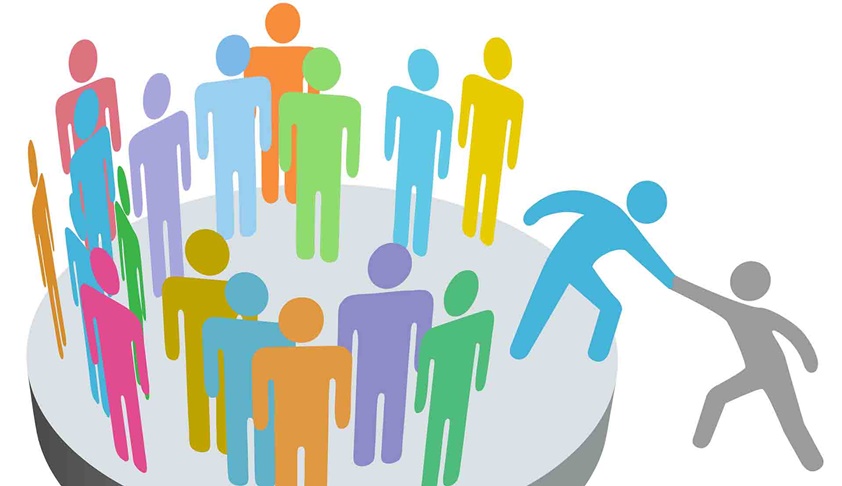They say that what you do affects the people around you. It’s true, we are somehow connected in some ways. Whether or not you know a person, their action or non-action can cause you harm or benefit. The human brain is complicated as it is and psychology a science that will help us understand how it works.
Psychology

Psychology is the scientific study of human brain by understanding the human behavior and mental processes. It involves biological influences, social pressures, and environmental factors that can affect how a person can think, act and feel. Psychology is a broad field that studies the human thought, behavior, development, personality, emotion, and motivation.
Years of research resulted to the development of different subspecialties of Psychology. The most popular of which is Clinical and Counseling Psychology. Clinical psychology deals on the assessment, diagnosis, and treatment of mental disorders. While Counseling psychology, focus on the personal and interpersonal functioning of a person.
Benefits of Psychology
Psychology is an applied science, but most people don’t understand what it truly is. Psychology has been improving a lot of people’s lives in a very long time. People who use psychology on a daily basis are the health workers, scientists, advocates, policy makers and even teachers when handling their students. Knowing the role of psychology in the society will lead to better understanding of people about this branch of science and removes the stigma in the mental disorders.
1. Health Psychology

Health psychology is the study of the psychological and behavioral processes in health, illness and healthcare. Psychology is often integrated in the medical practice through the biopsychosocial approach. Psychologists are also a part of the health care team. Their role is to help assess, diagnose, and treat the psychological problems and social well-being. Acute or chronic illnesses both have an effect on the psychological and behavioral aspects of a person. Psychology is here to help us understand the process that a person is going through and also what to do during these times. Psychologists and other health care workers aids in educating and guiding the patient understand his or her condition and help them avoid the risky and unhealth behaviors and maintain a positive outlook that can combat the stress, depression and anxiety.
2. Education Psychology

Education psychology involves the study on how a person learns including topics such as the student outcome, the instructional process and the individual differences in learning, gifted learners and learning disabilities. The psychologists who works on this field are curious on how people learn and retain the information given to them. Here are the benefits of education psychology in the society:
- It helps the teachers and prospective teachers to understand and improve the efficiency of the learning process which they can apply into teaching. Also, it helps know the learning potential of the students.
- In education psychology, they usually give a learning assessment prior to the start of teaching. This is where the educator will learn about the student’s strength, weaknesses, achievements in live, educational level, positive and negative stimuli, environmental factors and lastly, other factors that may affect their learning process.
- Aside from that, it can also make recommendations to the problems identified during the assessment by suggesting to enroll in early interventions program, teaching specific strategies that can be used at home and at school, and lastly, tips on how to deal with the emotional or environmental issues that they have.
3. Positive Psychology

Positive psychology is the study of the conditions and processes that contributes to the optimal functioning of people, groups and institutions. Positive psychology is used as a treatment where it builds, strengthens and improve the view of a person towards her life. This is a different approach, as treatments commonly targets people with pathology and negative state of mind. The words happiness, optimism, hope, positive thinking and mental resilience all fall under the umbrella of positive psychology.
It may be unrealistic to others but for some, it is a needed change. Unlike positive thinking, positive psychology’s intention is to extend beyond the problem-focused psychology and let the person face his or her problems through the use of optimism and positive thinking. The key themes of positive psychology include focusing on the strength, revealing of the positive emotions, finding a state of flow, developing their coping ability and lastly reframing their mindset.
People who use their strengths are happier, more confident, increased level of stress esteem, increase energy and vitality, less stress, more resilient, are likely to achieve their goals, performs better at work, and lastly, are able to develop themselves and keeps growing as an individual.
Conclusion
Psychology is not just a theoretical branch of science. It plays a greater role in understanding the human brain, behaviors, emotions and reactions to the positive or negative aspects in their lives. The environment also plays a role on how a person act. Also, psychology helps establish relationship between friends, families and lovers. We didn’t realize it but we are applying psychology every day from the moment we wake up until before we sleep. It has a vital role in maintaining our mental health and health in the optimal level.
